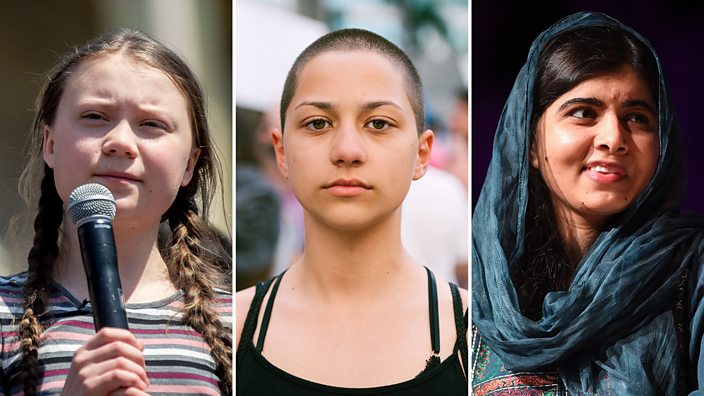In the last couple of posts, we have looked at the importance of being clear about what you want your content to achieve and who exactly your audience are. This time we look at how you can use your business purpose as the cornerstone for the content that you share. This is particularly important as the world wakes back up from the imposed slumber of the last few months and starts to reassess what this whole life and work thing is about anyway. The Corona Crisis has been referred to as the ‘great accelerator’ of trends that were underway anyway. The growing importance of what businesses stand for - their core purpose - will be included in this.
purpose
ˈpərpəs/
noun
“A person, object or organisation’s reason for being.”
For organisations, these are aspirational by their nature, grounded in humanity and go beyond the profit motive. A business’s purpose is often referred to as its ‘North Star’ – an unattainable, guiding light, against which all activities are measured. It provides clarity for all the decision-making in the business, from the significantly strategic to the day-to-day tactical.
“Purpose is a long-term, forward-looking intention to accomplish aims that are both meaningful to the self and of consequence to the world beyond.”
– Bill Damon, Director, Stanford Center on Adolescence
Purpose has come to be referred to as the ‘Why?’ for a business, as outlined by Simon Sinek in his excellent book Start with the Why. It should clearly articulate the stance of the business, allowing everyone who comes into contact with it to identify whether it aligns with their own value structure and aspirations. As this alignment grows, it graduates to a state that stakeholders are able to describe as ‘belonging’. This desire to belong to a tribe answers a base yearning within us all. Many of the most successful businesses of our time – Zappos, Ben and Jerry’s, and Apple – have grown through the successful propagation of a tribal belonging among their staff and customers. This is only possible through a powerfully articulated, clear purpose.
This success has led to purpose becoming en vogue for much of the business world. It’s no longer enough to exist to ‘maximise shareholder value’. In the post-2007 world, purpose- and cause-driven business is more important than ever.
The Purpose of Purpose in the Content of your Content
The fact that your purpose resonates with your audience makes it a valuable resource when looking for content to broadcast or campaigns to run. This doesn’t mean that all the content you create should suddenly be about charities or that it should be about ‘do-gooding’. It also doesn’t mean that all your content needs to be about your corporate purpose. It means that all the content that you create should have a tangential relevance to your ‘Why?’ as a business. This will provide an underlying coherence to your content at the same time as reinforcing your brand identity. It’s a step towards your purpose being about actions, rather than just words.
While purpose is extremely valuable to corporate communicators, it must be ingrained in your way of doing business. It isn’t enough to simply talk about it: it must become part of your DNA. Your customers and employees will thank you for it, as will your shareholders in due course, so everyone ends up happy.
Purpose and the next generation
Purpose has become particularly important given the evolutions in employment patterns in the current century. Speak to most employers, and they will complain that today’s youthful workforce has become less loyal and flightier, but the facts don’t entirely bear this out.*
*According to LinkedIn, millennials – those born between 1982 and 2000 (and among the 500 million who use the platform) – change job four times on average in their first ten years in the workplace. There is disagreement over whether this represents a significant departure from previous generations. A US Bureau of Labor Statistics study of the baby-boomer generation found that they had held an average of 11.7 jobs between the ages of 18 and 48. This is certainly more than the baby boomers’ grandparents would have had at the turn of the 20th century.
What has happened, without question, is a shift in what the workforce want from a job. Millennials have seen their contemporaries overturn convention and earn billions as the creators of global technology brands. From Greta Thunberg or Ed Sheeran to Justin Bieber to Malala Yousafzai, they have seen how a compelling story can pluck anyone from obscurity and plaster them across the global stage. They mainline videos that show them what is happening in the world – their world – and how they can and must play a role in shaping it. ‘Shape the world’ is what they plan to do.

Young people naturally find it easier to pick up new things (which is just as well). This has meant that they have been disproportionately empowered by the current Technological Revolution. This is upending traditional power structures. They know they have this power, and want to know what the brands they interact with – as their suppliers, employers and broadcasters – will do for them. Young people no longer live to work, they work to live. Work is something that the modern employee does as a part of their life. They expect to live the life of their choosing, which means that all employment is viewed through a ‘What’s in it for me?’ prism. Each job has to be a stepping stone or stamp to their career passport, enhancing their skills and experience to enable the next leap onwards. Millennials have never known a world not negatively affected by human impact.
Climate change, the ‘plastification’ of the oceans, mass extinction and social inequality all play on their minds. They want the businesses that they have a relationship with to be part of the solution to these problems. This explains why business purpose is so specifically important to them, particularly when choosing an employer.
They believe that business can be a genuine force for good in the world. Of the 7,900 young people surveyed as part of the Deloitte Global Millennial Survey 2017, 76% view ‘business’ positively and believe that it has a positive influence on society. This rose to 89% among those considered to be ‘hyperconnected millennials’; i.e. those identified as being highly digitally connected compared to the average in their own countries. Nine out of ten of the most influential millennials believe that business has a positive influence on society. As the guardians of big business, you should seize this opportunity and build on it.
Why should this matter to you?
This matters because the millennials are becoming the most powerful generation in history. They are the largest generation (92 million in the US), surpassing the baby boomers (77 million US), and are entering the workplace and their prime earning/spending years. By 2025 they will make up 75% of the global workforce. They already control US$2.7 trillion in annual expenditure. In the West, over time, they will inherit the wealth of their baby-boomer parents, much of which has been protected and built by final-salary pensions and significant real-estate-asset inflation. They are the future of business and our planet.
Young people want purpose, belonging and ownership of the brands they interact with – your brand. They want to take part. They have grown up surrounded by social media and technology in the post-9/11 world. Having a purpose to work towards makes them more-engaged employees, more-loyal customers and more-active advocates for your brand. They want you to be part of the solution, and they want you to be the enabler.
For employees, the ability to take part in charitable causes at work leads to an increase in loyalty. Deloittes’ aforementioned survey found that of the 54% of millennials who were provided with the opportunity to contribute to good causes or charities, 35% stayed in their job for 5 years or more (vs 24% without the opportunity). They were also more positive about the role of business in the world and more optimistic about the social situation generally.
It’s not just employee engagement that makes this a good area for your business to get involved in. There’s also the direct-profit motive. Around 89% of millennial consumers have said there is a strong likelihood they would buy from companies that support solutions to particular social issues, and 91% said that this fact would increase their trust in the business.11 This would explain why market-research firm Nielsen identified that, in the financial year 2015, sales of consumer goods from brands with a demonstrated commitment to sustainability grew more than 4% globally, while those without grew less than 1%.
Want to produce really effective video? We have pulled together our TEN COMMANDMENTS of better video to help get you there. You can download it right here.
Business steps up
“We cannot close our eyes to the challenges the world faces. Business must make an explicit positive contribution to addressing them. Business has to change.”
– Paul Polman, CEO, Unilever
The last few years have seen a concerning increase in the amount of political division in the Western world. Much of this has been driven by people who put their personal political advancement ahead of the harmony of their people. As a reaction to this, we’re already starting to see visionary businesses take more-inclusive political stances. Gone are the days when all business sat on the sidelines, unwilling to take a stand for fear of alienating potential customers. Take a stand and your audience know where they stand – it gives them the opportunity to belong.
At the Super Bowl - the colosseum of advertising - a number of the commercials had a political, pro-inclusivity sentiment to them. There have been significant responses to many of the current administration's policies. These range from the condemnation of his ‘Muslim ban’ to consternation at his decision to withdraw the US from the 2015 Paris Climate Agreement, which drew heated statements from the CEOs of many of the Fortune 500 companies.
UK-based, certified, purpose-driven businesses (B-Corps) grew 28 times faster than the national average in the financial year 2018.
“With great power comes great responsibility.”
– French National Convention, 1793 via Spiderman, 1953
Business is the most powerful man-made force in the modern world. It affects every home and influences every government. It has been the engine for financial advancement that has reduced inequality globally and reduced the number of people living in extreme poverty (by the current metric of those living on less than US$1.90/day) by 74.1% in 25 years, according to the World Bank. It improves and enables lives, imbuing them with purpose and meaning on a global scale. We couldn’t have advanced beyond the Middle Ages without it. This power is greater than it has ever been. Big business has won big on the back of global shifts in power – now it has to give back.
Long-termism pays
“Economic performance is not the only responsibility of a business… without responsibility, power degenerates into non-performance. So the demand for socially responsible organizations will not go away; rather, it will widen.”
– Peter Drucker
The great global recession of 2008 has led to the very nature of capitalism being questioned. In the public consciousness, much of the blame for the crisis fell at the feet of bankers, lenders and businesspeople focusing too much on short-term returns and not enough on long-term resilience. The disenchantment with the current environment has even extended to the nature of business and capitalism being questioned. In order to continue to function with the public’s assent, business needs to take steps (and be seen to take steps) to address their long-term impact, and win back the trust that has waned in recent years.

As McKinsey shows in its Corporate Horizon index, taking a long-term approach leads to better performance across five key factors, including earnings, job creation, market capitalisation and profit. It tracked 615 large and middle-capitalisation (mid-cap) US publicly listed companies from 2001 to 2015, based on patterns of growth, investment, earnings quality and earnings management. This then allowed it to assess each company’s relative performance based on its behaviour.
McKinsey found that, between 2001 and 2014, the revenue of long-termist firms grew on average by 47% more than the revenue of the other firms in its study. The economic profit of these long-termist firms grew 81% more on average. These companies also added 12,000 more jobs in the 15 years to 2015. McKinsey found that the potential value unlocked by companies taking a longer-term approach was worth more than US$1 trillion in forgone US gross domestic product (GDP) over the decade to 2015.
There are still challenges – 87% of executives and directors say that demonstrating strong financial performance in 2 years or less is their most pressing priority. That said, the extent to which this movement has become a mainstream way of thinking is reflected on by BlackRock chairman, Larry Fink:
“Society is demanding that companies, both public and private, serve a social purpose. To prosper over time, every company must not only deliver financial performance, but also show how it makes a positive contribution to society. Companies must benefit all of their stakeholders, including shareholders, employees, customers, and the communities in which they operate.
“Companies must ask themselves: What role do we play in the community? How are we managing our impact on the environment? Are we working to create a diverse workforce? Are we adapting to technological change? […] Today, our clients – who are your company’s owners – are asking you to demonstrate the leadership and clarity that will drive not only their own investment returns, but also the prosperity and security of their fellow citizens.”
With a global population of over 9 billion people expected by the year 2050, in order to survive, business must be driving the solution to the challenges that it will bring. A failure to do this will lead to a lack of any future market in which to sell your goods and services. This isn’t a ‘tree hugging’ environmentalist plea, this is a reality we must all grasp.
By 2050, there will be no such thing as ‘sustainable’ business; there will be only business.
 Check out our past work through our Ariel Inspire platform here.
Check out our past work through our Ariel Inspire platform here.
Actions Matter More than Words
“[Cause marketing] is no longer a competitive differentiator unless it is also accompanied by a genuine effort on the part of companies to demonstrate how their efforts were making a real impact on achieving results.”
– Cone Communications
Cone Communications has been running an annual study on the efficacy of cause-related marketing. It found that this is no longer a differentiator, unless it’s also accompanied by a genuine effort by the companies to demonstrate they are achieving an actual impact. Unfortunately, this shows it’s not enough to simply talk about the great projects that you’re putting money into. Audiences are far more likely to talk about what a brand did than what they said. This means that, in order to make taking a more conscientious approach work for you, you actually need to get your hands dirty. You must ‘live your purpose’. It should shine through in everything that you do. Failure to do this leads to a perceived lack of authenticity in the eyes of your stakeholders, which, thanks to social media, will do disproportionate damage to your brand.
It’s also important to get intimately involved in the causes that you wish to benefit in order to avoid the charge of ‘jumping on the bandwagon’, as Pepsi found with their Kendall Jenner protestors spot…

Getting it Wrong - Pepsi and Kendall Jenner
Whatever cause you decide to get involved in, it’s essential that your brand has an authentic attachment to the cause. This cannot just be lip service. It’s also extremely important that you understand the nuances of the issue and don’t trivialise it through superficial understanding. Pepsi’s Kendall Jenner commercial shows her giving cans of Pepsi to police officers, seemingly with a view to reducing tensions at a Black Lives Matter protest. The idea that Jenner, who is white, could turn up and solve the situation with a can of soda was seen as extremely insulting and out of touch. Social media did the rest, culminating in the 18-year-old model sharing a video with her crying and begging the forgiveness of the masses.
It might be tempting to move away from cause-related marketing as a result. The key point here is that if you’re going to take this route, which you should, you need to get involved at the root, make a difference and then tell that story. It is not acceptable to simply say, from a disconnected position, that you ‘believe’ in good causes. It is necessary to actually become involved in them, to understand them and to benefit them – to use your considerable might to work towards a solution, no matter how small the step you enable might be.
greenwash
/ˈɡriːnwɒʃ/
noun
“Disinformation disseminated by an organisation so as to present an environmentally responsible public image.”
Greenwashing is marketing that intentionally overemphasises the green credentials of a business activity, while downplaying the actual negative impact. As a term, it was first used by Jay Westervelt in an essay criticising the hotel industry for their habit of leaving cards in their bathrooms asking their guests to reduce the amount of washing that is done by not leaving their towels on the floor, from where they would have to be washed. Westervelt showed that, far from being motivated by the environment, the hoteliers were in fact motivated by the reduced costs it would incur, thereby increasing their profits.
It isn’t a new thing though, in 1969 alone, public utilities spent more than US$300 million on advertising their green credentials – more than eight times what they spent on the anti-pollution research they were touting in those ads.

Greenwashing became more elaborate through the 1970s and 1980s, to the extent that in 1990, on Earth Day 20, one-quarter of all goods launched in the US were marketed as being, recyclable, ozone friendly and compostable. In 1985, Chevron launched their People Do series, which was aimed at those who were societally conscious and hostile to the company. The ads featured bears, eagles and animals, and underlined how hard the company’s people were working to protect wildlife during their work. These ran for 15 years and became a textbook case of how successful greenwashing can be, leading to a 10% jump in sales and a 22% jump among the hostile audience target group.
Greenwashing in the current ‘post-truth’ age is alive and well. The bottled-water industry, for example, leans heavily on imagery of the natural world in its marketing, and trumpets the reduction in plastic used in its bottles, while its products continue to have a severely negative ecological impact. Only 31% of plastic bottles consumed in the US are recycled. With so much demand for ‘green’ products (72% of millennials will pay more for environmentally sustainable products), it’s not surprising that businesses are keen to stress their credentials.
In Summary:
In this blog, we’ve looked at the value of purpose to content producers. Taking steps to fix the world can be useful beyond leaving the planet in a reasonable state for our children. It can make your content far more effective, consistent and valuable.
There are three main points you need to consider:
- Having a clearly defined and communicated business purpose is like having a North Star for the business.
It’s a significant asset for a number of reasons. These include better staff retention, better audience engagement and a more loyal customer base. People care about purpose. This makes it a great area to look to for things to broadcast about. If you anchor all of the content that you produce in your purpose, you’ll ensure that there is consistency of message.
Your content doesn’t need to be all about your purpose directly, but you should be able to draw a direct line between it and the videos you make.
- “With great power comes great responsibility”
Business is the most powerful man-made force in the world. This world faces a number of significant challenges. Business has benefitted greatly from globalisation, and it has played its role in bringing about climate change. Now is the time to stand up and be a part of the solution. It may help the world avoid a cataclysm. It makes excellent business sense and gives the opportunity for a lot of excellent content. Your audience are less cynical than you think about business being part of the solution. You must grasp this opportunity and rebuild their trust.
- Actions matter more than words
Content has to be created around genuine initiatives. You must ‘walk the walk’ before you ‘talk the talk’. You must ‘live your purpose’. Failure to do this will lead to significant brand damage online. Don’t be guilty of greenwashing.
If you're producing video it's important to get the length right for each social platform. We have done the research so you don't have to. You can download our white paper right here.
If you have a project that you would like to discuss, our international team of Exec Producers are ready to help make it a success. Drop them a note here and one of them will give you a call back.



.svg)
